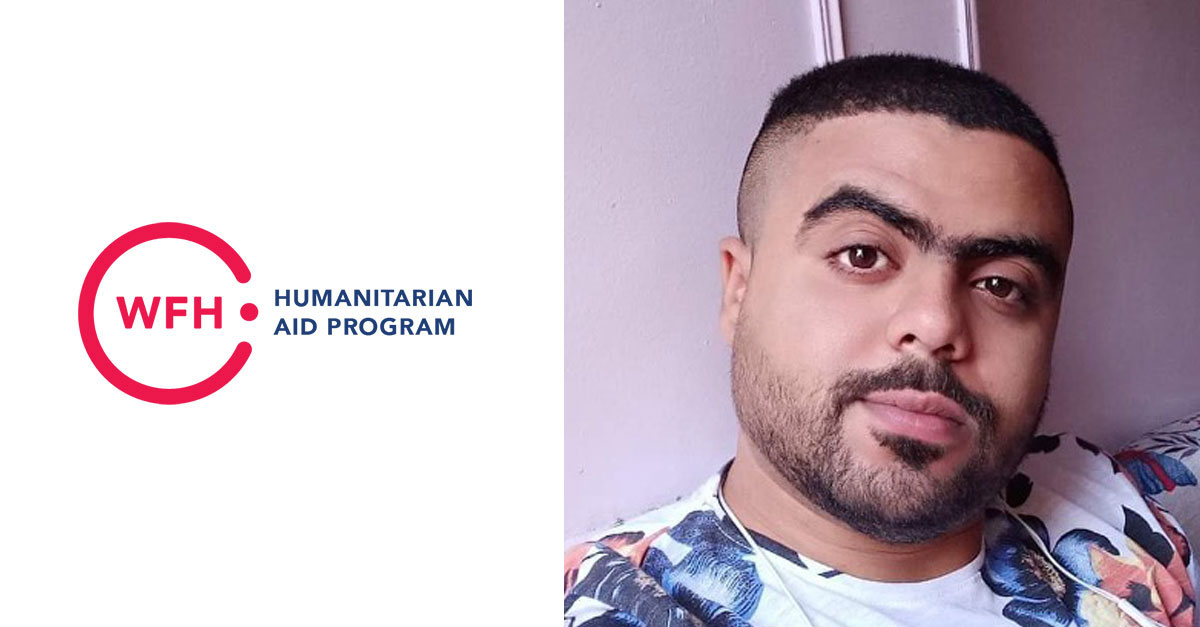Next month, we will be publishing an article on the work that the WFH has done in Egypt over the last two decades, including the recent signing of a memorandum of understanding (MOU). Today, we hear from Mohamed Abdel-Al Sayed, a 29-year-old man with severe hemophilia A who has benefitted from WFH Humanitarian Aid Program support. His letter has been edited for clarity.
Hello WFH,
I am Mohamed Abdel-Al Sayed, 29 years old. I was diagnosed with hemophilia when I was three months old. My whole life I have lived on plasma and cryoprecipitate. One day I felt a very severe pain at my right lower abdomen. Unfortunately, there was internal bleeding that happened without any warning. I went to the El-Demerdash Hospital at 2 o’clock at night, hoping that they would treat me with plasma. Unfortunately, they told me that they could not provide me with any replacement treatment. The bleeding continued to increase inside my stomach.
I waited until the morning to be examined in the hematology clinic. The doctor, the first time she saw me, referred me to surgery. The bleeding increased. My blood pressure dropped so much that I was dizzy. I started fainting. My heart stopped twice. I fainted, and when I woke up, I found myself in intensive care. An exploratory operation had been performed and my abdomen was opened with about twenty stitches. The surgeons had to open it to stop the bleeding.
My condition was very critical, and my family approached the Egyptian Society of Hemophilia to ask for a consultation and treatment. Thank God they responded quickly and contacted the surgery team. They gave the hospital donated treatment product provided by the WFH Humanitarian Aid Program.
I’m so grateful to the WFH. I became better. For about a month, I was in the hospital for post operative care where I was supported by prophylactic management. If it was not for this support my wound would not have been closed, nor would I be in good condition now. I hope that the WFH Humanitarian Aid Program aid continues and helps more people.
March 2024
Mohamed Abdel-Al Sayed
The WFH Humanitarian Aid Program has been active in Egypt for over a decade, with 94.6 million IUs of factor donated to the country since 2015. Just last year, 25.6 million IUs of factor were donated to Egypt. To find out more about the WFH Humanitarian Aid Program please click here.
About the WFH Humanitarian Aid Program
The WFH Humanitarian Aid Program improves the lack of access to care and treatment by providing much-needed support for people with inherited bleeding disorders in developing countries. By providing patients with a more predictable and sustainable flow of humanitarian aid donations, the WFH Humanitarian Aid Program makes it possible for patients to receive consistent and reliable access to treatment and care. None of this would be possible without the generous support of Sanofi and Sobi, our Founding Visionary Contributors; Bayer, CSL Behring and Roche, our Visionary Contributors; Grifols, our Leadership Contributor; and Takeda and Japan Blood Products Organization, our Contributors. To learn more about the WFH Humanitarian Aid Program, visit www.treatmentforall.org.













